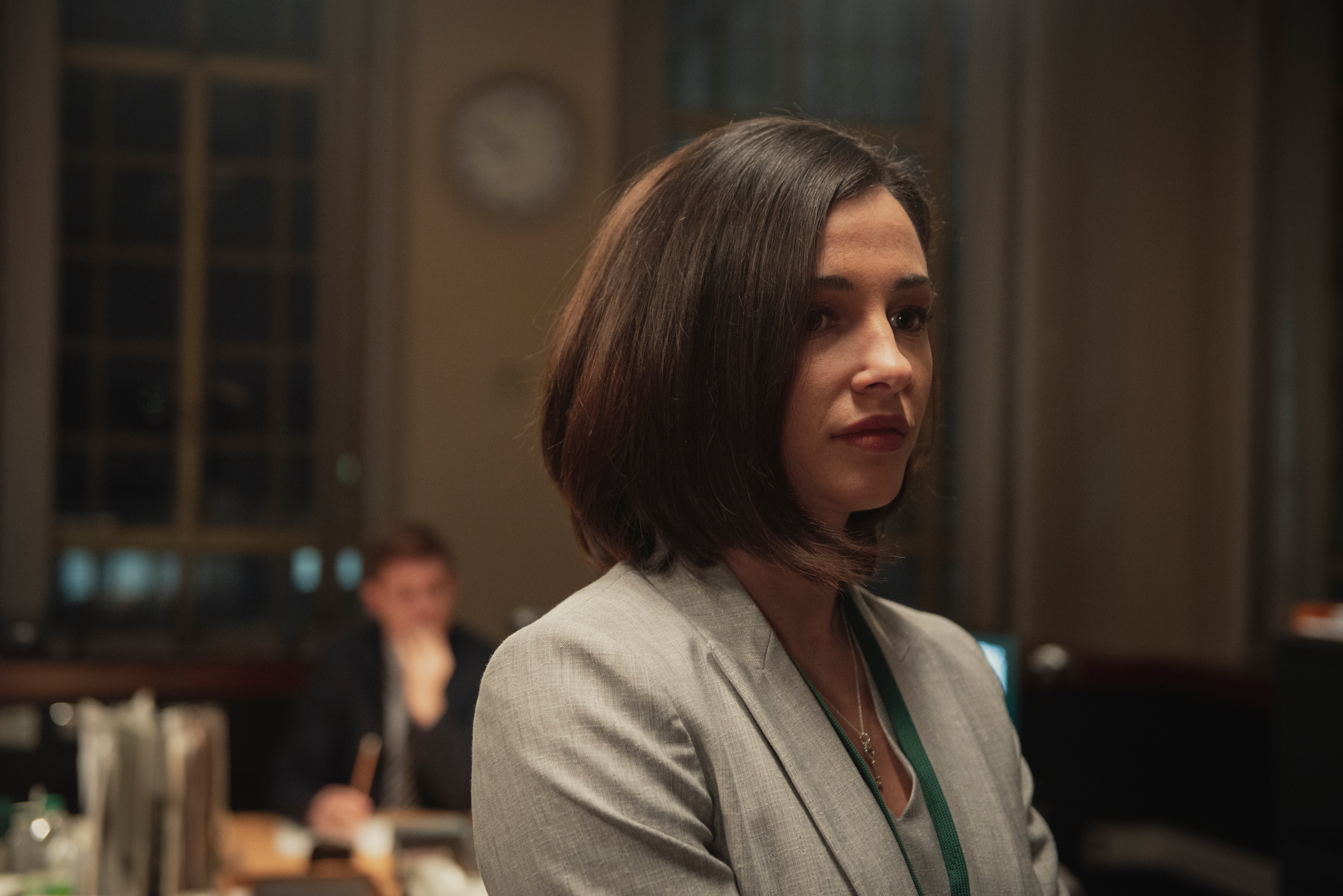Anatomy of a Scandal’s creators didn’t get the memo about sexual violence on screen
Ham-fisted dialogue and drunken camera angles are the least of the new Netflix show’s worries, writes Fiona Sturges


In the Netflix drama Anatomy of a Scandal, a Tory MP, James Whitehouse (Rupert Friend), confesses to his wife, Sophie (Sienna Miller), that he has been having an affair with a parliamentary aide, and that the story is about to break in the tabloids. Whitehouse, a supercilious ex-public schoolboy with a house in Belgravia, two perfect children and a live-in nanny, believes his indiscretion to be a mere hiccup in his upward political trajectory. A place in the cabinet after the next reshuffle is all but assured, not least because the PM is an old chum from his Oxford days where they were both members of a Bullingdon-esque club called the Libertines.
But then the police turn up as Whitehouse is leaving the House of Commons and inform him that the aide in question, Olivia Lytton (Naomi Scott), has made an allegation of rape. In a moment of slow-motion surrealism that has prompted widespread mirth on social media, we watch Whitehouse being lifted into the air and thrown backwards as if he has, literally, been punched in the gut. The trauma, it appears, is all his.
Lately, we have seen a handful of TV dramas tackling the subject of sexual violence and consent. In 2020’s I May Destroy You, writer and actor Michaela Cole offered a nuanced portrait of rape in which the victim, Arabella, pieces together the events of the night before after having her drink spiked. In Netflix’s Unbelievable, a powerful and considered study of “good” vs “bad” victims, we met Kaitlyn Dever’s Marie, who gives a muddled account of her assault at the hands of a serial rapist, leading police officers to pressure her into retracting her statement.
More recently, Four Lives, about the crimes of the real-life serial killer Stephen Port, told the stories of the men Port raped and killed, and the experience of their families as they fought against the complacency of police; while Port, played by Stephen Merchant, appeared on screen, his character and motivations remained deliberately opaque.
Such portrayals are important, reflecting as they do a broader shift in the way society is starting to view sexual assault and trauma. Until recently, male brutality and female passivity were the norm on TV, and rape merely a device to provide tension or titillation. But now we are seeing writers and directors approaching sexual violence with seriousness and sensitivity, focusing less on perpetrators and investigators than the stories of victims and how they are treated in a flawed justice system.
Alas, the makers of Anatomy of a Scandal didn’t get the memo. The series – which is based on a novel by Sarah Vaughan and is produced by David E Kelley, whose credits include Big Little Lies and The Undoing – is less interested in the impact on the victim than the damage to a man’s reputation, and the fallout for his family and party. Lurking on the side-lines is Joshua McGuire’s Malcolm Tucker-ish spin doctor who initially shrugs off the impending scandal: “Sex doesn’t have to kill a career these days,” he tells Whitehouse. “You might even gain some fans among the older male voters.” Later, as the rape allegation comes to light, he changes his mind, urging the prime minister to distance himself from Whitehouse: “If he gets full-on MeToo’d, it will start to make your loyalty look ill-advised,” he cautions.
In fairness, the series does raise some important questions, among them: why does Sophie go to bed with her shoes on? Are Belgravia gardens really that tiny? And why does the House of Commons look absolutely nothing like the House of Commons? Indeed, Anatomy of a Scandal has many problems, from the ham-fisted dialogue and the drunken camera angles to the continued slo-mo sequences in which characters suddenly fall through floors, or are picked up and plonked into a scene that happened 20 years earlier. Meanwhile, the disputed sexual encounter, which takes places in a House of Commons lift, is played and re-played, often in slow motion, and styled like the world’s worst pop video.
But it is the absence of the victim’s perspective that rankles most. We learn nothing of Olivia’s character or her life outside of her relationship with Whitehouse, or, indeed, of the impact of the assault and court case. Plot-wise, she remains at the bottom of the pecking order; by the end, we know more about the prosecuting lawyer’s best friend than we do Olivia. And while she does get to give her version of events under cross-examination, her testimony is filtered through the reactions of Sophie who sits in the gallery.

Ultimately, this is not just the story of political scandal, but a tale of a wronged wife. Sophie, who is played with simmering fury by Miller, has decided to stand by her man despite her suspicion that her husband has been, at best, economical with the truth. At home, she watches him encouraging their children to chant “Whitehouses always come out on top!”, or cheating at Monopoly (he keeps a get out of jail free card in his wallet – subtle, non?), and so begins to reassess their partnership. His life, she realises, has been one of immense privilege, entitlement and of never being told “no”.
Of course, not all TV dramas have to provide a teachable moment, and perhaps we shouldn’t take too seriously a series that spells out human emotion by literally punching its characters in the gut. Nonetheless, in a culture where the actions of powerful men are increasingly scrutinised, and the voices of victims more likely to be heard, Olivia’s invisibility feels like a criminal oversight.
Join our commenting forum
Join thought-provoking conversations, follow other Independent readers and see their replies
Comments


Bookmark popover
Removed from bookmarks